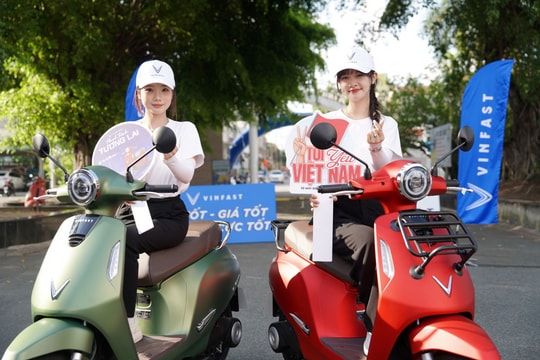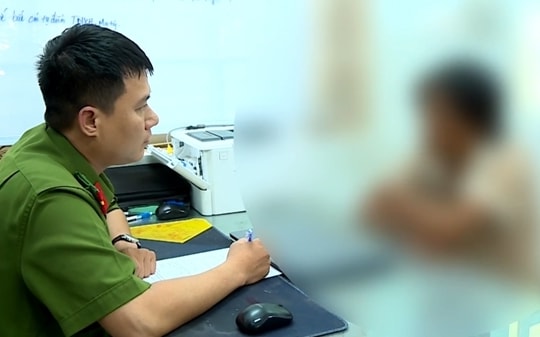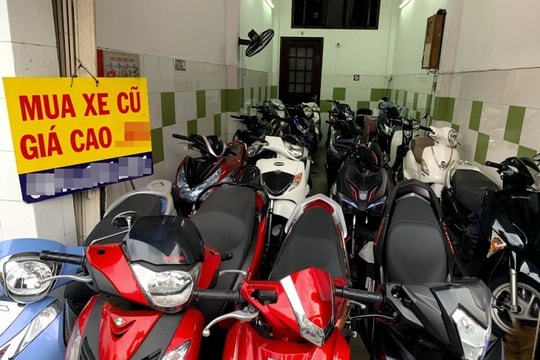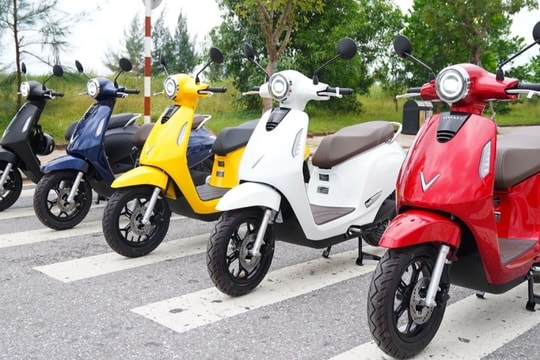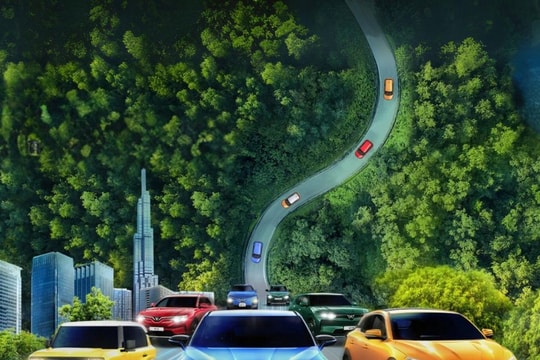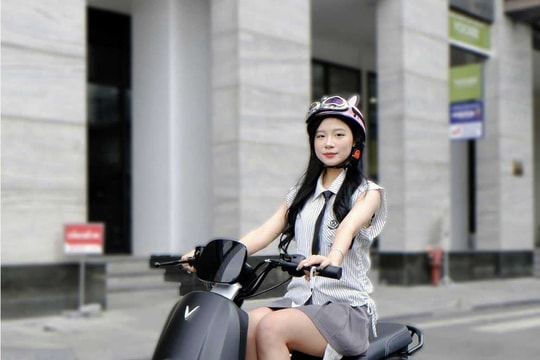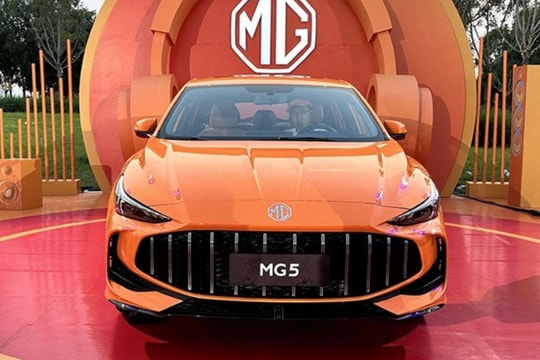New tax proposal for cars in Vietnam - which companies benefit?
Exempting special consumption tax on domestically created value is a way to favor assembled cars, forcing companies to consider the assembly-import problem.
The proposal to exempt special consumption tax on domestically produced value added of automobiles has caused a stir among car manufacturers in Vietnam. If this proposal comes into effect, many strategies formulated 4-5 years ago will have to change in an instant.
Exemption from special consumption tax will make domestically assembled cars hundreds of millions cheaper than imported cars, even though the import tax from ASEAN will be 0% in 2018. The obvious result is that the advantage belongs to the company that has the most assembled cars. An expert in the industry commented that with this type of tax, joint venture companies that had plans to switch from assembly to import will have to recalculate.
Which company benefits?
The two current domestic assembly giants, Truong Hai and Hyundai Thanh Cong, will have the biggest advantage when entering the race in 2018 with the new tax. Truong Hai and Thanh Cong are both expanding their factories, converting most of the imported car models to assemble, serving the purpose of exporting back to regional countries.
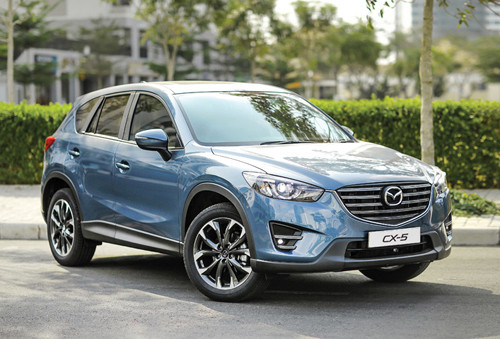 |
Truong Hai and Thanh Cong will benefit. |
These changes do not mean that the door is closed to joint ventures. In fact, if production continues, the opportunity is shared equally among all. Toyota still produces Vios, Innova, Altis, Camry in Vietnam, Honda has City and CR-V, Ford has EcoSport, Focus, Fiesta or Nissan has X-Trail. If the proportion of components used domestically can be increased, each company will create an advantage that is not inferior to its competitors Truong Hai or Thanh Cong.
Suppose in the D-size SUV segment. The market has Fortuner imported from Indonesia, mu-X and Pajero Sport, Everest imported from Thailand, competing with Santa Fe assembled domestically. From 2018, imported cars benefit from import tax from 30% to 0%, prices can be reduced by 23%; meanwhile, assembled cars are exempted from special consumption tax for the domestic value, the higher this content ratio, the deeper the price reduction. The possibility of price reduction of assembled cars is "wider" than imported cars that only rely on import tax.
The business problem cannot be simply said import or assemble. Ford experts said that the constantly changing strategy will make many companies unable to react. The Board of Directors of car companies have never met as many times as in 2016-2017, and policies change not according to long-term roadmaps like before but by year, even half a year.
"To attract component suppliers to Vietnam, start producing and supplying spare parts for car manufacturers, and sell finished products on the market with preferential taxes from the government, it will take at least 2 years," he shared.
In this regard, Truong Hai and Hyundai Thanh Cong are more proactive because of their large factory scale, convenient supply system and development direction that coincides with the proposals that management agencies are implementing.
Last chance for Vietnam auto industry
Representatives of the two giants once confidently said that they would change the face of Vietnam's auto industry if supported by the government, and any changes must be made before 2018, "if not now, then never".
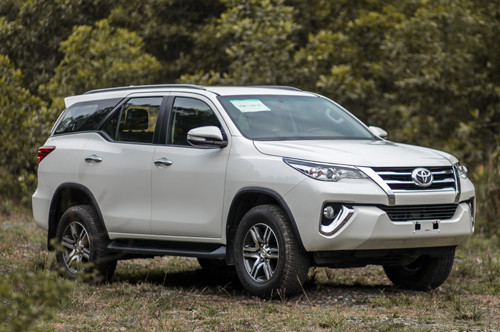 |
Imported cars can be difficult. |
At the groundbreaking ceremony of Truong Hai's new Mazda factory in March, Prime Minister Nguyen Xuan Phuc said he would propose to the National Assembly measures to support domestic production and promote the industry towards assembly, because according to the head of the government, a country with a population of nearly 100 million without an automobile manufacturing industry is an economic and political mistake.
These assertions are clear indications of a future that Truong Hai and Thanh Cong have predicted. For many years, Vietnam’s development orientation has been to assemble cars domestically, but all strategic visions have not been completed for many reasons, the most conflicting of which is the limitation of the number of cars sold on the market, the failure to develop the supporting industry, so it is impossible to assemble.
If the market continues as it has in recent years, by 2018 Vietnam will become a place where imported cars are mainly consumed, as companies switch from assembling to importing cars from Thailand and Indonesia for sale. With a 0% tax rate, imported cars will be much cheaper than domestic cars, by then assembled cars will no longer be competitive, the market will gradually switch to imports, and the risk of the industry being wiped out.
Australia is a typical example, by the end of 2017 this country will no longer have an automobile industry, most car manufacturers such as Toyota, Ford, Mitsubishi will withdraw their factories and move to produce in Thailand, because of the huge incentives applied by the Thai government, aiming to turn this place into the "Detroit of Asia". About 45,000 direct workers and more than 200,000 others in related industries will lose their jobs, the "kangaroo" country's economy will lose about 15 billion USD each year. From a macroeconomic perspective, this is a failure.
For Asian countries without an automotive technology foundation, the only way to build a four-wheel industry is to create favorable conditions for manufacturers to develop and assemble.
"If there is no drastic change, Vietnam will be no different from Australia," he emphasized. At that time, customers will be the ones who suffer, facing barriers of taxes and fees. Luxury cars will become even more luxurious.
A battle of chance
"Playing with policy is always a game of chance," said a big boss in the industry, showing that all calculations will sometimes become empty if policies change. A few years ago, companies were preparing to reduce production and switch to imports as 2018 approached. At that time, Truong Hai affirmed that it would pursue the assembly path, going against the current that many people thought was not feasible.
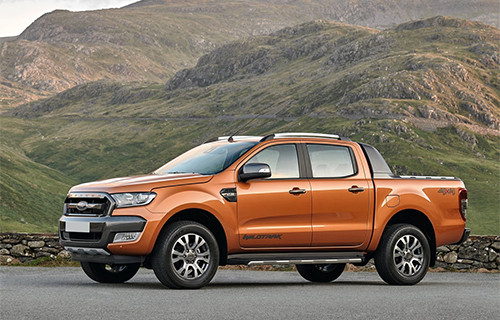 |
For many models, importing is the only option. |
But now, the situation has turned 180 degrees. Truong Hai and Thanh Cong are right, if the upcoming tax changes become a reality. As for the joint ventures, they must cancel all previous plans and discuss how to deal with them. The difficulty for this group is to go with the flow, switching from importing to assembling is not easy.
For example, the Ford Ranger imported from Thailand has a very good price. If the special consumption tax and registration fee are calculated as for a car, the price may double, then Ford will have difficulty producing the Ranger in Vietnam at a low price. Just the cost of transporting components from many places to Vietnam is enough to make the car price much higher than if it were produced in Thailand as it is now.
However, experts say it is not yet possible to say exactly whether the upcoming tax will be completely as proposed or not, because there are points that conflict with Vietnam's commitments in the ATIGA Agreement. In the free trade agreement, countries must commit to the principle of non-discrimination against goods originating from other countries, so the tax on special consumption tax based on the domestic value content ratio may conflict.
Joint ventures are still waiting for a less unfavorable tax policy for imported cars or a deadline to prepare business plans. One thing is certain, no matter how the new tax is applied, assembled cars and assemblers will still be the priority in the coming years.
According to VNE
| RELATED NEWS |
|---|

